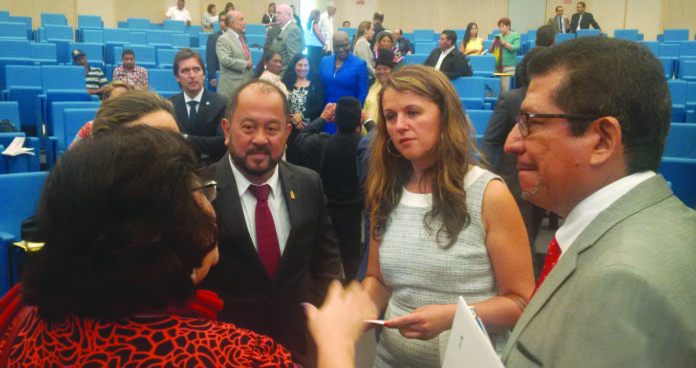Ottawa – On August 3-5, I represented Canada at the ParlAmericas’ Action to Stop Climate Change conference in Panama City, Panama, where parliamentarians from all 35 countries representing the Americas gathered to discuss ways to fight climate change. I am extremely hopeful that the knowledge gained from this joint initiative will help our country develop measures that will lead to significant environmental improvements.
As a member of the Standing Senate Committee on Aboriginal Peoples, I have seen first-hand the impact of climate change on the lives of the indigenous peoples of the Canadian North. Communities in the North that are greatly dependent on the environment for their livelihood are at immediate risk because of the threat posed to their traditional way of life, but the impacts of climate change extend far beyond.
Last year, the Standing Senate Committee on Agriculture and Forestry, of which I am also a member, released a study on the importance of bee health to sustainable food production in Canada. In recent years, annual bee colony losses in Canada were more than twice the normal rate, and climate change is listed as one of the main factors that cause increased mortality rate. As pollinators, bees are vital to the environment, where they help to ensure the survival of other animal and plant species. Bees are also important for food and seed and honey production industries, which contribute hundreds of millions of dollars to the Canadian economy annually.
It is fairly easy to understand, then, why climate change is a concern that we must all share, and why it is extremely important that we work together to mitigate the negative impacts of this phenomenon. Recognizing this, parliamentarians at the Panama conference established the Climate Change Network, which will serve as a forum for legislative work and the exchange of best practices to diminish the environmental, social and economic effects of climate change.
As part of our commitment to the agenda put forward at the gathering, I encourage Canadians to get involved in the development of legislation that will help our country adapt to climate change and alleviate its effects. Canada is in a unique position to take a leadership role in finding new and innovative ways to address this issue, which will only be possible with the cooperation of every sector of society.
The challenge lies in finding and implementing a plan that will be both environmentally responsible and economically viable, and I hope that any future legislation will achieve a balance of the two.



